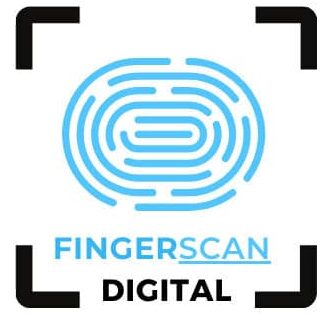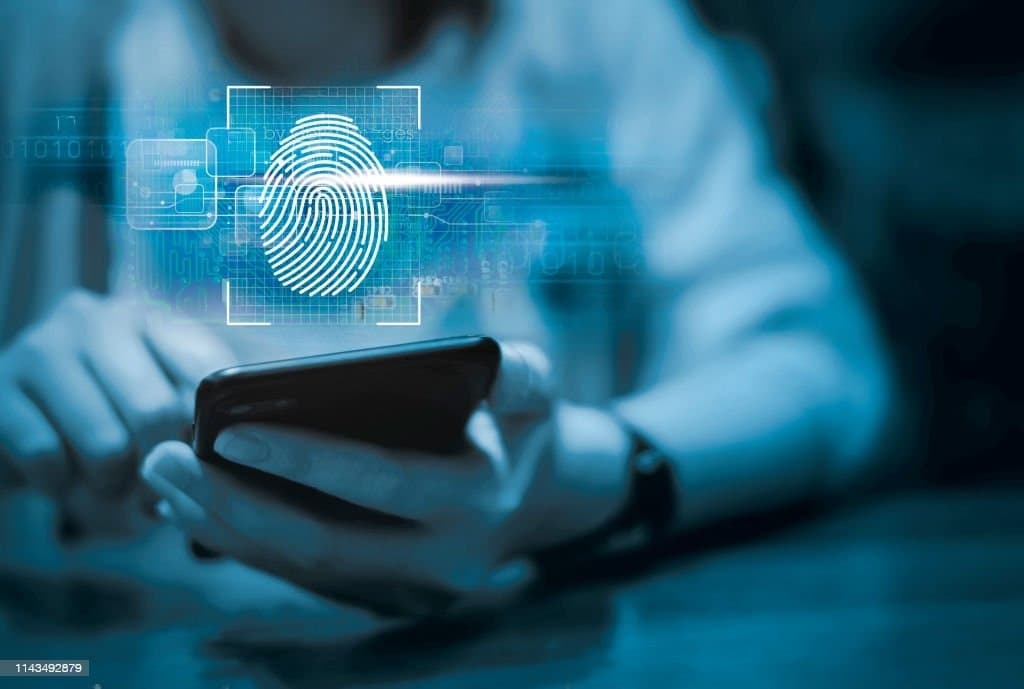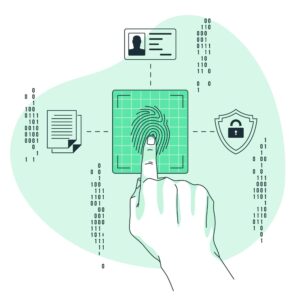In an era dominated by digital interactions and transactions, securing our online presence has become more crucial than ever. With every swipe, tap, and click, we leave behind a trail of digital footprints that could potentially be exploited by cybercriminals. This is where the power of mobile fingerprinting services comes into play, offering a cutting-edge solution to enhance our digital security.
Understanding Mobile Fingerprinting Services
Mobile fingerprinting services are a sophisticated technology designed to provide an additional layer of security to our digital lives. Just as a fingerprint uniquely identifies a person, a digital fingerprint uniquely identifies a device. This digital fingerprint is a combination of various attributes, including device type, operating system, browser, language settings, and more. By analyzing these attributes, mobile fingerprinting services create a distinct profile for each device.
The Role of Mobile Fingerprinting in Security
- Enhanced User Authentication: Mobile fingerprinting can be seamlessly integrated into various authentication processes, adding an extra layer of security beyond traditional methods like passwords or two-factor authentication. This makes it significantly harder for unauthorized individuals to access your accounts.
- Fraud Detection and Prevention: Mobile fingerprinting services play a crucial role in fraud detection by identifying suspicious activities. If a device’s fingerprint suddenly changes, it could indicate potential fraudulent behavior. This technology helps financial institutions and businesses detect and prevent unauthorized access to user accounts.
- Protecting Online Transactions: Mobile fingerprinting safeguards online transactions by ensuring that the device being used for the transaction is indeed the legitimate owner’s device. This reduces the risk of unauthorized transactions or financial fraud.
- Thwarting Bot Attacks: Bots and automated scripts are commonly used by cybercriminals to launch attacks. Mobile fingerprinting can identify patterns associated with bots and block their access, thus safeguarding websites and online platforms from malicious activities.
- Personalizing User Experience: Beyond security, mobile fingerprinting can also be used to personalize user experiences. For instance, websites can customize content or features based on the user’s device profile, creating a more tailored interaction.
Benefits and Considerations
- Uniqueness: Every device has a distinct digital fingerprint, making it difficult for attackers to replicate or manipulate.
- Continuous Monitoring: Mobile fingerprinting services can continuously monitor devices for any changes, allowing for real-time detection of potential security breaches.
- Privacy Concerns: While mobile fingerprinting offers enhanced security, there are concerns about user privacy. Some individuals might feel uncomfortable with the extent of device tracking and profiling. Striking the right balance between security and privacy is crucial.
- Evolving Threats: It’s important to acknowledge that cybercriminals are constantly evolving their techniques. While mobile fingerprinting is a powerful tool, it should be complemented with other security measures to provide comprehensive protection.
Navigating the Ethical Landscape of Mobile Fingerprinting Services
In the previous parts of this series, we delved into the benefits and challenges of mobile fingerprinting services, emphasizing their role in enhancing digital security. However, as we embrace this powerful technology, it’s essential to address the ethical considerations that arise from its widespread adoption.
Balancing Security and Privacy
While mobile fingerprinting offers a robust defense against cyber threats, it also involves tracking and analyzing user data. Striking a balance between security and privacy is paramount. Users have a right to know how their data is collected, stored, and utilized. Transparent communication about data practices builds trust and empowers users to make informed decisions about their digital security.
Informed Consent
Obtaining informed consent from users before implementing mobile fingerprinting services is not only ethical but also legally required in many jurisdictions. Users should have the option to opt in or opt out of this technology based on their comfort level with sharing device data.
Data Protection and Storage
The security of collected data is as crucial as the security these services provide. Organizations must employ stringent data protection measures, including encryption and secure storage practices. Ensuring data integrity minimizes the risk of data breaches and unauthorized access.
Preventing Discrimination

Mobile fingerprinting systems must be designed and trained to avoid biases and discrimination. Attributes used for fingerprinting should not inadvertently lead to profiling based on factors such as race, gender, or socioeconomic status. Rigorous testing and validation can help mitigate these concerns.
Ethics of Data Sharing
The data collected through mobile fingerprinting is valuable, not just for security purposes but also for potentially monetizing user insights. Organizations must be transparent about whether and how this data will be shared with third parties. Users should have the option to control the extent to which their data is shared.
Limiting Scope and Purpose
Mobile fingerprinting services should only collect data necessary for security and fraud prevention. Gathering excessive information beyond these needs can be seen as invasive and unethical. Minimizing data collection to what’s essential demonstrates respect for user privacy.
Safeguarding Vulnerable Groups
Special attention should be given to vulnerable populations, such as minors and individuals with limited digital literacy. Clear and simple explanations of mobile fingerprinting and its implications can empower these groups to make informed decisions.
Continuous Evaluation and Improvement
Ethical considerations surrounding technology are ever-evolving. Organizations must commit to continuous evaluation of their mobile fingerprinting practices. Regular audits, feedback from users, and adapting policies to align with evolving ethical standards are vital. Learn more about mobile fingerprinting services
Frequently Asked Questions (FAQs) About Mobile Fingerprinting Services
As we delve into the realm of mobile fingerprinting services and their impact on digital security, you might have a few questions in mind. Here are answers to some common queries:
1. What is mobile fingerprinting?
Mobile fingerprinting involves creating a unique digital profile for a device by analyzing various attributes such as device type, operating system, browser, language settings, and more. This profile serves as a digital fingerprint that helps identify and secure the device in online interactions.
2. How does mobile fingerprinting enhance security?
Mobile fingerprinting adds an extra layer of security to digital interactions. It aids in user authentication, fraud detection, and protecting online transactions. By identifying changes in device attributes, it helps prevent unauthorized access and cyberattacks.
3. Is mobile fingerprinting the same as biometrics like fingerprints or facial recognition?
No, mobile fingerprinting is not the same as biometrics used for user identification. While both involve unique attributes, biometrics like fingerprints and facial recognition identify users, whereas mobile fingerprinting identifies devices.
4. Can mobile fingerprinting prevent all cyber threats?
While mobile fingerprinting is a robust security measure, it’s not foolproof. Cybercriminals are always evolving their tactics. Combining mobile fingerprinting with other security measures creates a comprehensive defense against various threats.
5. What are the privacy concerns with mobile fingerprinting?
Mobile fingerprinting involves collecting device data, which raises privacy concerns. Users should be informed about data collection, its purpose, and how it’s protected. Striking a balance between security and privacy is crucial.
6. Can I opt out of mobile fingerprinting?
In many cases, users can opt out of mobile fingerprinting services. Organizations should provide clear options for users to choose whether they want to participate.
7. How does mobile fingerprinting handle device diversity?
Mobile fingerprinting services need to accommodate a wide range of devices with different attributes. The technology should be adaptable to various configurations while maintaining accuracy.
8. What is the future of mobile fingerprinting?
Mobile fingerprinting is evolving with trends like behavioral biometrics and AI integration. It might become an integral part of securing IoT (Internet of Things) devices and extending beyond online interactions.
9. How do organizations ensure the ethical use of mobile fingerprinting?
Organizations should prioritize transparency, informed consent, data protection, and limiting data collection to ensure ethical use. Regular evaluations of practices, involving stakeholders, and adhering to evolving ethical standards are crucial.
10. Should I rely solely on mobile fingerprinting for security?
No, mobile fingerprinting should be part of a multi-layered security approach. Combining it with strong passwords, two-factor authentication, and other security measures provides a more robust defense.
As technology advances, staying informed is key to making wise decisions about digital security. Mobile fingerprinting services offer substantial benefits, but it’s important to consider ethical implications and combine them with other security strategies for a holistic approach to protecting your digital life.
Conclusion: A Responsible Digital Future
Mobile fingerprinting services hold immense potential to bolster our digital security landscape. However, ethical considerations must guide their implementation to ensure that security doesn’t come at the cost of user privacy, autonomy, and fairness.
As individuals, organizations, and policymakers, we play a collective role in shaping the ethical use of these technologies. By embracing transparency, informed consent, data protection, and user empowerment, we can harness the power of mobile fingerprinting while upholding the values that define our digital future: security, privacy, and respect for all. Ultimately, the responsible use of mobile fingerprinting services is a testament to our commitment to a safer and more ethical digital world.
Read our other blog posts here




